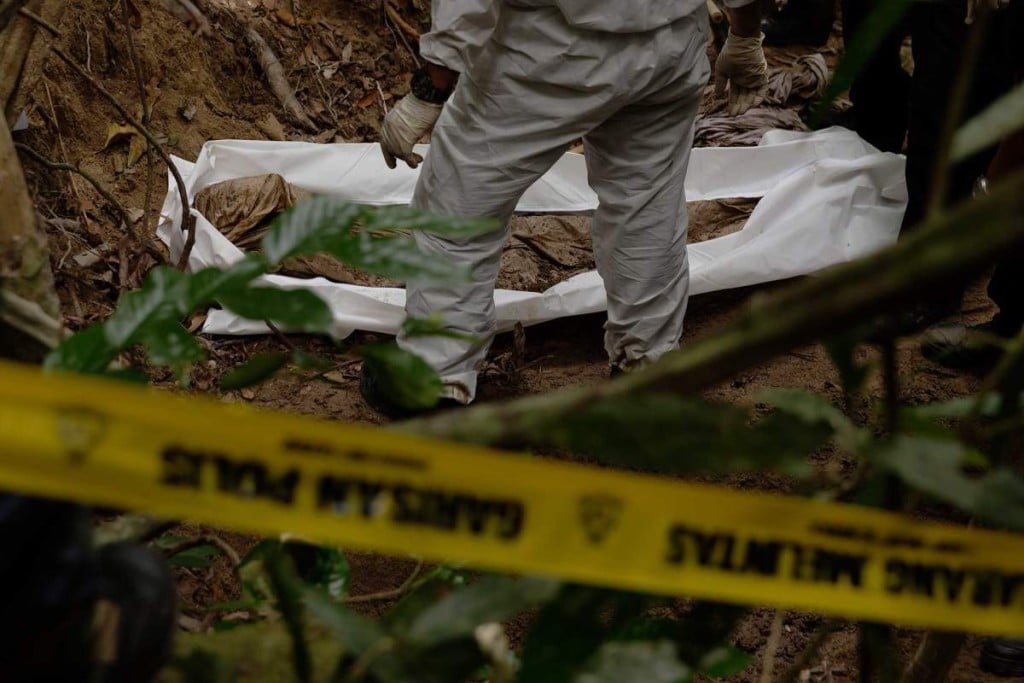By: Luis Gay
Edited by: Sharon E. Chin
Malaysian police claim that they have discovered 28 suspected human trafficking camps located near the Northern Malaysian border, one day after authorities uncovered multiple mass graves. National police chief Gen Khalid Abu Bakar told reporters that they had discovered what they believed to be 139 graves.
Dense jungles in northern Malaysia and southern Thailand have been a popular route for smugglers to bring victims into Southeast Asia from Burma by boat. Most of those being smuggled are Rohingya Muslims who are fleeing from persecution. The current findings of jungle camps and graves have stirred regional concern about human trafficking and smuggling. This discovery follows repeated denials by Malaysian officials that such activity exists; these same officials have been previously accused multiple times by human rights groups of not doing enough to prevent illegal trade. The biggest camp discovered could have housed up to 300 people and another about 100. Enclosures were made of wooden fencing and tarpaulin. At the sites, storage boxes for bullets and white clothes traditionally used to wrap dead bodies in Muslim burial rituals were found. The evidence strongly suggests of a large-scale operation of human trafficking in the region and officials suspect that they will discover more bodies as they investigate further.
Khalid noted that some camps were fairly old, with at least one highly decomposed body made up of only skin and bone. Other camps had rice, vegetables, and cooked meals, showing signs of abandonment as early as two weeks. Khalid told reporters than an investigation is being carried out and will not condone anyone involved in these crimes, including Malaysian officials. He also explained that no action was taken earlier because the police was building up intelligence based on 37 arrests of suspects of human trafficking, which included two policemen. As of today, there have been no arrests in connection to the 139 grave sites.
This revelation brings attention to a battle that Malaysia has been involved in for quite some time: migration under the operation of criminal syndicates. The latest example occurred on May 22, 2015, where 3,500 migrants were still stranded on overloaded vessels with very little supplies as they wait to enter Malaysia. Malaysia and Indonesia have allowed those at sea to come ashore temporarily. Thailand will not allow migrant boats to land, although will treat anybody who is ill or injured.
—
Luis Gay is an undergraduate attending the University of San Francisco, pursuing a Biology degree and Chemistry Minor. He is a Social Media Assistant at Cancer InCytes Magazine.
—
Reference:
Yi, Lih Ben. 25May2015. “Malaysia migrant mass graves: police reveal 139 sites, some with multiple corpses”. The Guardian. [Accessed 26 May 2015] http://www.theguardian.com/world/2015/may/25/malaysia-migrant-mass-graves-police-reveal-139-sites-some-with-multiple-corpses
Photo Credit:
This photo was taken by James Nachtwey and can be found in an article in TIME magazine. [Accessed 26 May 2015] http://time.com/3895816/malaysia-human-trafficking-graves-rohingya
—
Get tens of dozens of discount coupons at Cancer InCytes Magazine’s COUPONS page
